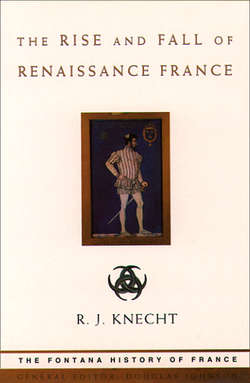Читать книгу The Rise and Fall of Renaissance France - R. Knecht J. - Страница 41
The financial crisis of 1521–3
ОглавлениеIt was only in 1521, after Francis had gone to war with the emperor, that the gap between his income and expenses became almost unbridgeable. For war had become very expensive, especially the hire of Swiss mercenaries. ‘These people’, wrote Anne de Montmorency, ‘ask for so much money and are so unreasonable that it is almost impossible to satisfy them.’ Yet Francis could not dispense with them. Within a few months his indebtedness to moneylenders rose alarmingly. By the spring of 1522 he owed them one million livres. At the beginning of 1521, Semblançay had in his keeping 300,000 écus which the king had received from Charles V as part of the Neapolitan pension and 107,000 livres belonging to Louise of Savoy. When she implored Semblançay to do everything in his power to assist her son, he assumed that she meant him to use her savings as well as the king’s. But this money was very soon swallowed up. On 13 September, Semblançay informed the king that he had only enough money left for one month. As the war dragged on through the winter, Francis created offices, and in February 1522 alienated crown lands worth 200,000 livres. The taille of 1523 was anticipated to the tune of 1,191,1841. The king called on a number of towns to pay for infantry. He also seized church treasures worth 240,000l. The silver grille enclosing the shrine of St Martin at Tours was torn down by royal agents, melted down and turned into coin. At Laon cathedral four statues of apostles in gold were given the same treatment.
On 22 September the government raised a loan of 200,000l. from the Parisian public against the security of the municipal revenues. This marked the beginning of the system of public credit, known as the Rentes sur l’Hôtel de Ville. Each contributor to the loan was assured of a life annuity or rente, carrying a rate of interest of 81/3 per cent which was paid out of the receipts from various local taxes. As the interest was paid by municipal officials of the same social background as the lenders, the system rested on a fair measure of mutual trust, yet Parisians showed little enthusiasm for the scheme.
